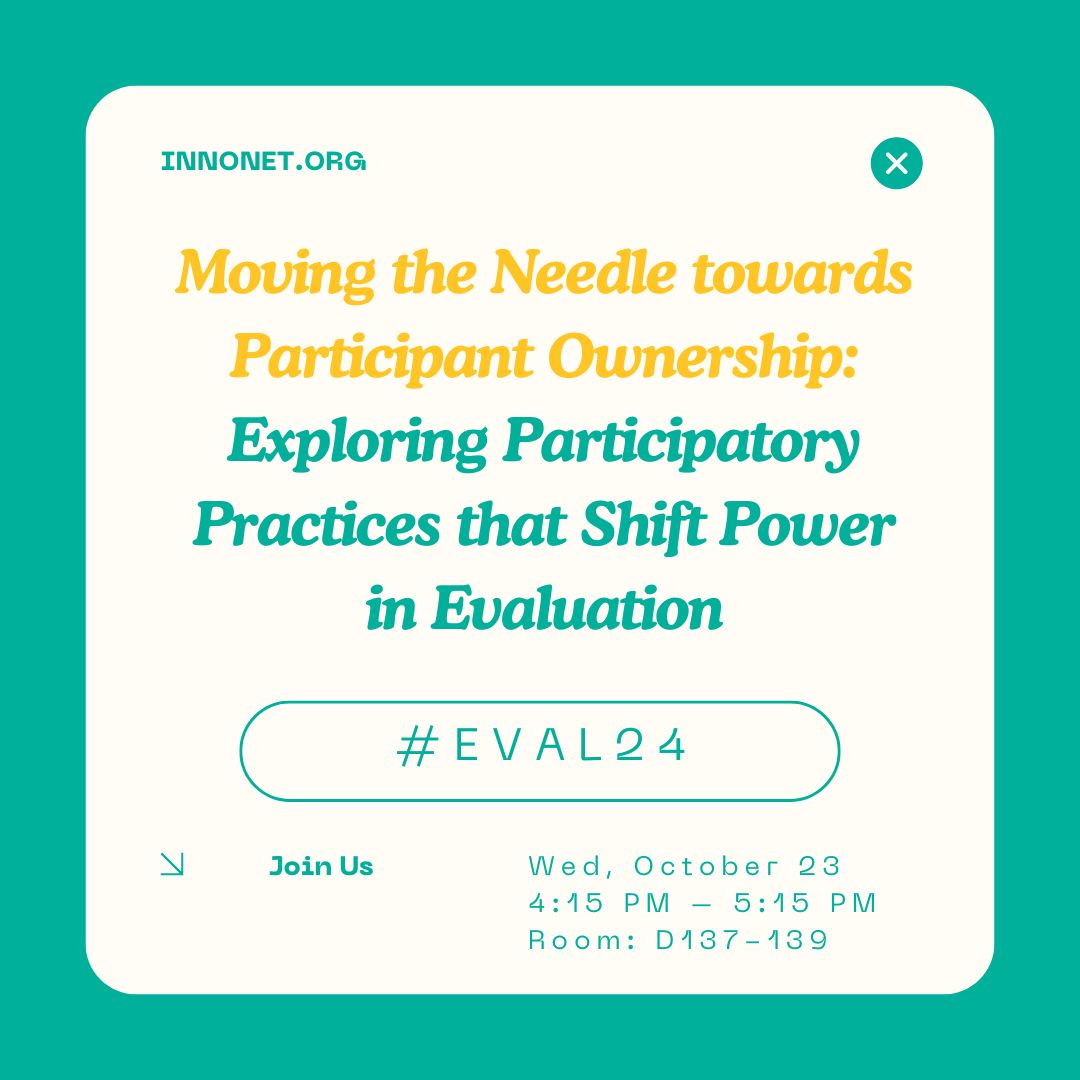Exploring Participatory Practices that Shift Power in Evaluation

Moving the Needle towards Participant Ownership: Exploring Participatory Practices that Shift Power in Evaluation
Presenters: Rebecca Perlmutter, Cory Georgopoulos, Carrie Fisher
Wed, Oct 23, 4:15 PM – 5:15 PM | Room: D137-139
As evaluators committed to the Equitable Evaluation Framework™, participant ownership is a key value underlying practicing equitable evaluation principles. But what does that look like in practice, and what are steps we can take to get closer to participant ownership? This roundtable will explore what working toward participant ownership in evaluation and learning design can look like in different contexts with examples of participatory practices that work toward equitable evaluation’s responsibility to shift power to participants.
Innovation Network and the Institute for Community Health will share examples of how we are moving toward participant ownership by incorporating participatory practices in evaluation and learning design in their projects. We are defining “participant” broadly to include nonprofits, foundations, and grantees. We will share how we are learning and adapting from our work to better center participants and will provide examples and reflect on the successes, challenges, and lessons learned from projects, including: a) a client leading on developing a learning agenda; b) forming and working with a grantee evaluation advisory group ; and c) grantee learning circles.
Examples:
- Client-developed learning agenda. After working with a client (a national nonprofit that works with policy advocates at the state level) as their learning and evaluation partner for a year, the client proposed taking the lead on designing a learning agenda for the next phase of the work. Innovation Network created a template with guidance, the client developed learning and evaluation questions, and Innovation Network provided support and coaching.
- State coalitions evaluation advisory committee. In an evaluation of a large grantmaking program involving over 100 organizations in 23 states, evaluators convened a group of grantees to serve as an evaluation advisory committee. Through the intensive design phase, committee members thought through and gave input on the equitable composition of the committee itself, meaningful evaluation questions, non-exploitative data collection methods, metrics for success, and criteria for selecting case study example projects. The group also responded to the needs and desires of participants through serving as a conduit for critical messages to the funder, for introducing committee members to funder representatives, and for networking and thought partnership between committee members.
- Grantee learning circles. In an effort to orient learning around its grantees’ interests and disrupting typical funder-grantee dynamics, a foundation wanted to empower grantees working on a specific issue to have decision-making over grant-related learning. Grantees chose learning circles as their format. Every quarter, grantees come together to discuss a topic of the group’s choosing, sharing experiences, and talking through challenges in their work. Innovation Network has provided facilitation and organizing support to the learning circles in addition to noting high-level themes observed throughout their implementation.
In conversation with session participants, we will explore the following questions:
- What do participatory practices mean?
- When shifting toward participant ownership, who benefits from the “learning”?
- What are the necessary conditions for effective participant ownership?
- When we move the needle a little further towards participant ownership, even when we don’t get all the way there, can we still create meaningful improvement?
Session Resources:
- Presentation Slides: Moving the Needle towards Participatory Ownership